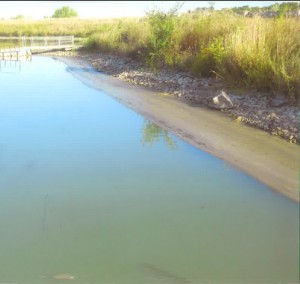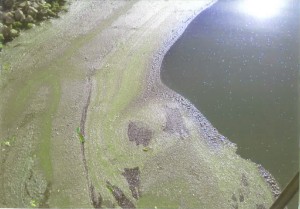 The Osceola Water Works team is continually working to ensure your water is clean, clear, and fresh. West Lake has been a great resource for the city’s water, but being a surface water resource, it poses unique treatment challenges.
The Osceola Water Works team is continually working to ensure your water is clean, clear, and fresh. West Lake has been a great resource for the city’s water, but being a surface water resource, it poses unique treatment challenges.
Surface water, such as Osceola’s West Lake, contains natural bacteria and other microorganisms like algae. The levels of these contaminants can be affected by several factors including rainfall runoff, soil conditions, land cover, agriculture, and the local topography. This creates the need for a greater focus on the surface water sanitation process.
Certain times of the year create a greater need for decontamination. During warmer months, surface water is home to more algae. In the spring, more field runoff occurs from melting. And more organic material and contaminants like dead leaves are found during the fall.
There are many factors that can influence the impurities in surface water, including wind and rain, land cover and soil conditions. Some communities are able to capitalize on a greater distance between their surface water resources and treatment facilities. If the water is being transported over a larger distance, there is the opportunity to filter impurities from the water before it reaches the plant, decreasing the need for more aggressive sanitation practices. The close proximity of West Lake to Osceola’s water treatment plant removes that option, and increases the need for our team to be more focused on cleansing strategies year-round.

“The quality of the raw water we are treating is degrading,” says Brandon Patterson, Water Superintendent for Osceola Water Works. “Therefore, we are having to increase our treatment process and continue to look hard at other available treatment options.”
Due to State and Federal regulations, the Water Works department is limited in treatment choices available to them. The easiest solution may appear to be using more of the current treatments, but there are byproducts from those treatments subject to government monitoring. Surface water regulations are becoming more strict, and treatment facilities like Osceola Water Works are constantly looking for better, more efficient means to treat the water while staying within set regulations.
Currently, roughly $1 million is spent annually on the entire operations of just the water treatment plant: this includes chemicals, lab testing costs, salaries, utilities and more. It is more important than ever to find more cost-effective means of processing and cleaning the water for the city.
Osceola is fortunate to have West Lake to supply surface water to Osceola residents and businesses. Through continued training efforts, investments in infrastructure, as well as strategic monitoring and treatment, you can rest assured that the water you drink, bathe in, and cook with is carefully sanitized and made safe for you and your family.